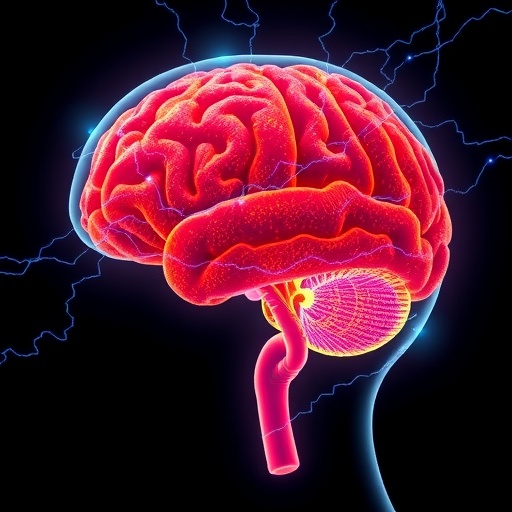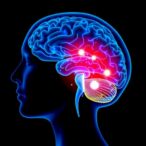In a groundbreaking study poised to reshape our understanding of lifestyle interventions on mental health, researchers from University College Cork have unveiled complex biochemical pathways through which exercise can counteract the behavioral consequences of a highly processed, Western-style “cafeteria” diet. Published in the esteemed journal Brain Medicine in October 2025, this research precisely elucidates how voluntary physical activity mediates antidepressant-like effects and metabolic regulation in adult male rats subjected to a diet markedly high in fat and sugar content, a dietary pattern that closely mimics contemporary ultra-processed human food consumption.
The experimental design involved splitting adult male rodents into groups receiving either a standard chow diet or a cafeteria diet comprising various palatable, ultra-processed items. Each dietary cohort was further divided by access to running wheels, enabling researchers to separately and interactively probe the effects of diet quality and self-directed exercise on neurobehavioral and metabolic endpoints over a seven-and-a-half-week timeline. This methodical approach allowed for the isolation of diet-exercise interaction at molecular, behavioral, and neurogenic levels, thereby offering refined insight into the brain’s dynamic response to lifestyle variables.
One of the standout revelations from this inquiry was the antidepressant-like behavioral effect induced by voluntary running exercise, even amidst a background of poor dietary composition. Behavioral assessments demonstrated that while the cafeteria diet prompted metabolic dysregulation and mood-related disturbances, access to running wheels significantly ameliorated depressive phenotypes in these rodents. Such data suggests a crucial neuroprotective role for physical activity that persists despite consumption of nutritionally suboptimal foods, underscoring potential real-world applications for populations unable to achieve immediate dietary improvements.
At the mechanistic core of these findings lies an untargeted metabolomic analysis of caecal contents, uncovering diet-driven perturbations in the gut metabolome. The cafeteria diet profoundly altered the composition of 100 out of 175 measurable metabolites in sedentary animals, evidencing substantial gut microbial metabolic shifts associated with dietary excess. Exercise selectively modulated a subset of these metabolites, notably reinstating levels of compounds previously implicated in mood regulation such as anserine, indole-3-carboxylate, and deoxyinosine. These key metabolites appear to represent biochemical conduits linking gut microbial activity with central nervous system function and behavioral outcomes.
While cognitive capacities such as spatial learning and recognition memory did not suffer significant impairment from the cafeteria diet alone, voluntary exercise yielded modest enhancements in spatial navigation performance. Anxiety-like behaviors were also subtly attenuated by exercise independent of diet, suggesting multifaceted benefits of physical activity on brain function beyond depression-related endpoints. The study’s comprehensive behavioral battery thus provides a nuanced profile of exercise’s mental health effects modulated by dietary context.
A parallel plasma hormone analysis offered compelling insights into the endocrine correlates of these neurobehavioral alterations. Animals consuming the cafeteria diet exhibited marked elevations in insulin and leptin, hormones intricately tied to energy homeostasis and metabolic signaling, which were substantially reduced by exercise. These hormonal modulations likely underpin exercise’s capacity to counteract diet-induced depression-like behavior by restoring metabolic balance. Intriguingly, additional hormones such as glucagon-like peptide 1 (GLP-1) and peptide YY (PYY) demonstrated complex, diet-dependent responses to exercise; GLP-1 elevations were blunted in cafeteria-fed runners, whereas PYY secretion increased specifically in those animals, indicating adaptive compensatory mechanisms in hormonal regulation.
The researchers further documented significant alterations in fibroblast growth factor 21 (FGF-21) and glucagon dynamics, where FGF-21 rose robustly in response to the cafeteria diet irrespective of activity level, whereas glucagon decreased upon dietary challenge. These multifactorial endocrine shifts illustrate a sophisticated hormonal milieu reflecting the interplay between diet, exercise, and brain physiology, and highlight potential targets for intervention to optimize mental health outcomes.
Central to the investigation’s neurobiological findings was the discovery that the cafeteria diet inhibited one of exercise’s hallmark benefits: enhanced adult hippocampal neurogenesis. Through immunohistochemical detection of doublecortin-positive cells in the dentate gyrus, researchers observed that only standard chow-fed exercising animals exhibited significant increases in new neuron formation, vital for emotional regulation and memory processes. This finding signals that poor diet quality may impose intrinsic constraints on the brain’s capacity to capitalize on exercise-induced plasticity, suggesting that combining dietary modulation might be necessary for full neurogenic benefits.
Robust correlation analyses bridge gut microbial metabolites and behavioral endpoints, showing negative associations between metabolites such as aminoadipic acid and 5-hydroxyindole-3-acetic acid with cognitive performance scores across groups. These relationships appear independent of dietary or activity condition, illuminating fundamental gut-brain biochemical pathways relevant in health and disease. The identification of these metabolites opens avenues for biomarker development and targeted therapeutics within the burgeoning microbiota-gut-brain axis framework.
Notably, an editorial accompanying the publication, authored by Professor Julio Licinio and colleagues, frames these findings within a clinical context, emphasizing their translational potential. The authors underscore that exercise retains antidepressant-like efficacy even without dietary improvement, offering a hopeful perspective for individuals facing challenges in modifying entrenched eating habits. This biological validation of exercise’s mental health benefit independent of diet presents an actionable strategy for public health interventions amidst rising global ultra-processed food consumption.
Looking ahead, this work prompts critical questions regarding the optimal sequencing and integration of lifestyle modifications. While exercise can confer immediate mood advantages, the suppression of exercise-driven neurogenesis by poor diet implies that long-term neural resilience may require concomitant nutritional improvements. Future research integrating female subjects, extended intervention durations, and dose-response frameworks will be pivotal to comprehensively elucidate how sex-specific and chronic factors modulate the intricate diet-exercise-brain nexus.
Moreover, the identification of anserine, indole-3-carboxylate, and deoxyinosine as metabolite candidates linked to behavioral outcomes signals promising targets for novel psychiatric treatments. Modulating these compounds pharmacologically or through pre/probiotic strategies could augment lifestyle interventions, advancing personalized approaches to managing mood disorders. This research thus champions a paradigm shift toward integrated metabolic and microbiome-oriented models in mental health therapeutics.
In sum, the study represents a significant advance in neuropsychiatric research by marrying innovative metabolomic methodologies, rigorous behavioral testing, and neurobiological assays to decode the complex biochemical crosstalk governing exercise’s antidepressant effects amidst dietary adversity. This multidisciplinary endeavor not only enriches fundamental scientific understanding but also offers tangible clinical pathways to alleviate diet-induced behavioral despair, a challenge increasingly pervasive in modern societies dominated by ultra-processed alimentation. By delineating the molecular footprints and endocrine mediators of this metabolic tug-of-war, the research ushers in a new era of targeted brain medicine poised to harness lifestyle factors for optimal mental health.
Subject of Research: Animals
Article Title: Exercise mitigates the effects of a cafeteria diet on antidepressant-like behaviour associated with plasma and microbial metabolites in adult male rats
News Publication Date: 21 October 2025
References: DOI 10.61373/bm025a.0116
Image Credits: Julio Licinio
Keywords: exercise, cafeteria diet, depression, metabolomics, gut microbiome, neurogenesis, hippocampus, metabolic hormones, brain plasticity, physical activity, mood regulation, microbiota-gut-brain axis
Tags: biochemical pathways of exercisecafeteria diet impact on moodexercise and mental healthgut-brain metabolic pathwaysjunk food effects on behaviorlifestyle interventions for mental well-beingmetabolic regulation through physical activityphysical activity and depressionresearch on diet-exercise interactionrodent study on diet and exerciseultra-processed food consumptionvoluntary exercise and neurobehavioral effects


